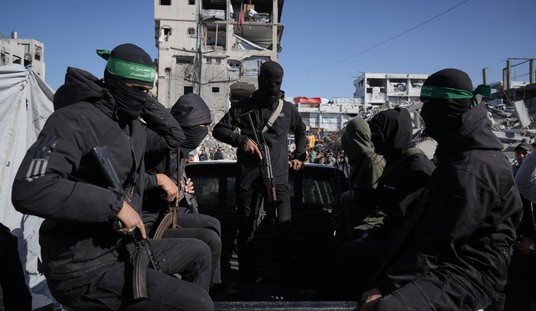The Middle Eastern sun shone bright in the cemetery where Professor Liviu Librescu, whose body had traveled as long and complicated a journey in death as it had in life, was finally laid to rest.
His widow Marlena shook her kerchief-clad head in disbelief as the rabbi read the Jewish prayers of mourning for the dead.
“It’s so painful for me to think of your last moments, in which you suffered. I’ll never know what went through your mind, but I hope very much that wherever you are, you will watch over your family,” she said by his graveside.
There was a core of strength evident in the small Eastern European grandmotherly woman that must have also existed in her husband. Despite the ordeal she had been through, she graciously greeted all who had come to support her family in their time of grief, speaking to some in Hebrew, some in English, and she emotionally embraced old friends greeting them in Romanian. Hundreds of friends, family, as well as total strangers had turned out to pay tribute to the heroic 77-year-old man who gave his life to save his young Virginia Tech students. The international press was out in full force to chronicle the burial of the man who was admired for his bravery the world over.
Speaking at the funeral, Librescu’s son mused what his father, the world-renowned aeronautical engineer, would think of the scene. “Dad, I think that at this moment you’re probably looking down on us from above and saying, ‘what’s the fuss all about? I only did what I had to do.’ From our childhood, you taught us to care for people, to work hard to succeed. But you never taught us to be heroes. That was more theoretical a lesson than aerodynamics,” he said. Then he added: “The course in aerodynamics are over. On April 16th, you started a new career, teaching a new subject – heroism.”
After the ceremony, Marlena remained by her husband’s grave, a pile of dirt covered with flowers, topped by a wreath with the banner, “From the Engineering Faculty at Tel Aviv University” to accept condolences.
It was clear that during the time he spent teaching at Tel Aviv University and the Haifa Technion, in the six years in Israel between their emigration from Romania and their move to the United States and Virginia Tech they had acquired no shortage of friends, who joined the friends and co-workers of their two sons in Israel, Arieh and Joe at the funeral. Person after person spoke of their affection for her late husband, recalled visits back and forth, inquired about her welfare. She spoke of her plans to pack up the Virginia home where she had lived with her husband for 20 years and join her children in Israel.
Like many other Israelis, it seemed surreal to me that an event which took place so far away should end up striking so close to home. When first hearing the horrible news about the Virginia Tech shooting on Monday, glued to the international news channels as the story unfolded, the only silver lining of solace I could think of, which I noted in a black-humor-laced remark to fellow journalist friends, “Well, finally some tragic bad news that has nothing to do with the Middle East.”
Little could I have imagined, that less than a week later, I would be standing in the small cemetery less than five minutes from my home in Ra’anana witnessing the burial of one of the victims of this far-away tragedy.
I’ve attended several funerals at this green and pastoral cemetery – but this was the first I’ve attended full of the reporters normally found at news events and press conferences scribbling in their notebooks and aiming their cameras at the scene, as the Fox News correspondent rehearsed his broadcast from behind the gravestones.
It was also the first time anyone buried in my local cemetery had been cited just two days earlier by the president of the United States. In a Holocaust Memorial ceremony Wednesday, President Bush praised Librescu’s heroism in the shooting that took place on the day set aside to remember Hitler’s victims, “On the Day of Remembrance, this Holocaust survivor gave his own life so that others may live. And this morning we honor his memory and we take strength from his example.”
Librescu, a 77-year old leading scholar in his field, survived the Holocaust in Romania. During World War II, he was first sent to a labor camp, then to to a ghetto in the city of Focsani. After the war, he rose to become such a prominent scholar that the Communist Regime refused his request to emigrate to Israel, and as a result of the request, he was fired from his job. He was permitted to leave the country only with the intervention of the late Prime Minister Menachem Begin.
He was honored not only by Israel and the U.S., but his native land as well. At the funeral, a representative of Romanian President Traian Basescu presented Librescu’s family with the Order of the Star of Romania both for his bravery and his contributions to science.
Over the course of the week, Librescu’s son Joe spoke of the two homes he loved in Israel and in Virginia. “He saw himself as something of an ambassador for Israel in a place where there were very few Israelis, and in his field of study.”
Librescu loved his university, his research and his students, and his father’s decision to blockade the door of his classroom with his body to protect his students, “he behaved exactly as I would expect him to,” his son Joe said, and was proud that, as far as he knew, none of the students in his father’s class were killed.
Joe also said that remarkably, although he hadn’t seen his father in six months, or spoken to his father for several weeks before the tragedy, he had been able to reach him just a day before the shooting. When they spoke, his father spoke of how he was looking forward to a family reunion planned in Romania in June. Sadly, that reunion turned out to be in Israel, around Librescu’s grave.









Join the conversation as a VIP Member